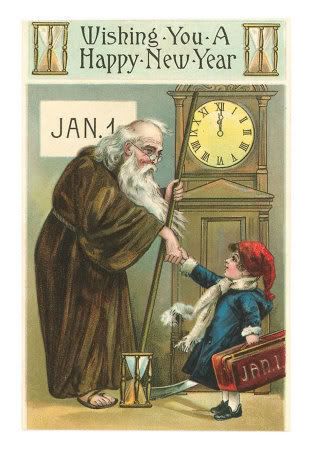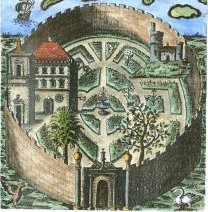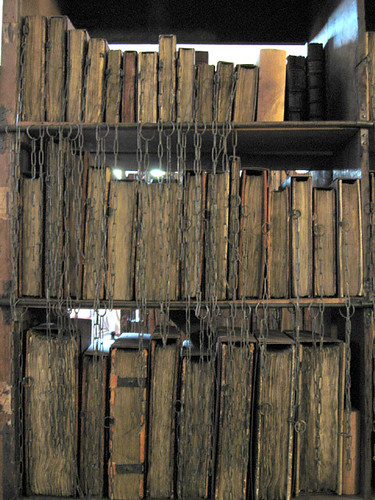
The sixteenth trump of the tarot, the Tower, is a symbol for abrupt and unexpected change. That is a good image to illustrate this summer in a number of ways. Firstly, due to the economic down turn, my family and I had to move. New city, new school, new house, new state. I'll spare you the sordid details.
Much more apropos, however, OCLC announced this spring that they are going to be expanding their services to include many of the functions traditionally handled by a library automation software package. The sorta thing sold by companies like SirsiDynix, Innovative Interfaces, ExLibris and a couple of others. OCLC's product is using the cloud model. Basically, the library would only need a fast internet connection and OCLC would handle the software and record maintenance. The software that you, the library, would use to do collection development, inventory management, and various patron services would all exist off site. They provide you with the code you need to embed a search box on your page. I can understand the appeal that this would have for many systems, especially smaller systems. I assume that the library in question would no longer need to own and maintain a physical server or the software packages on said server. My last system had no end of expense and headaches derived from that process (updating, patching, migrating, diagnosing issues, etc.) In the June, 2009 podcast of the Library 2.0 Gang, the mood was somewhat split. Many of the guests took a wait-and-see position, but a few took a more open position, saying that it was a good nudge to the big LIS providers to innovate. I guess I should also note that OCLC's Machiavellian grab, a.k.a. changes to the Policy for Use and Transfer of WorldCat® Records, cast a dark shadow over the discussion. The folks over at the Thingology, LibraryThing's blog have a very good update/discussion on this topic.









